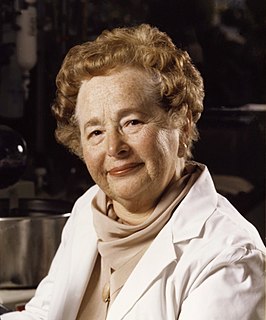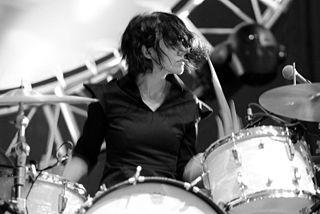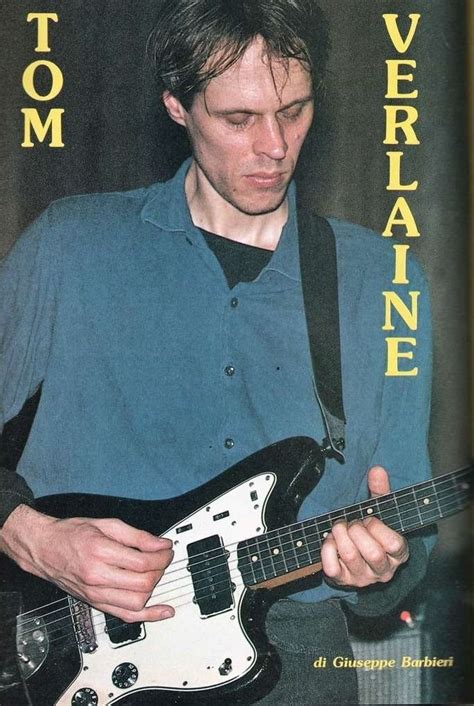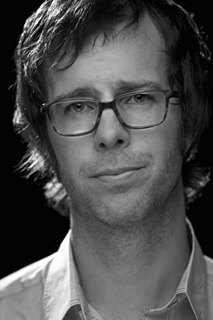A Quote by Jennifer Jason Leigh
I like as much time as I can get and I'll do whatever I think is helpful to prepare for a role. Sometimes it's practical research, meaning if I had to write shorthand, I'd learn how to write shorthand. Or if I have to know how to dance a certain way, I would learn that. And then there's just research of talking to people similar to the characters I'm playing. And there's stuff that I just feel is inspiring, whether it be music or a painting or a photograph. I've used a lot of Nan Goldin's photos in the past to inspire me. I use certain paintings and pieces of music.
Quote Topics
Certain
Certain Way
Characters
Dance
Feel
Get
Had
Helpful
How
In The Past
Inspire
Inspiring
Just
Know
Know How
Learn
Like
Lot
Me
Meaning
Much
Music
Painting
Paintings
Past
People
Photograph
Photos
Pieces
Playing
Practical
Prepare
Research
Role
Shorthand
Similar
Sometimes
Stuff
Talking
Then
Think
Time
Use
Used
Way
Whatever
Whether
Would
Write
Related Quotes
Lately I feel films are more and more like music. Music deals with abstractions and, like film, it involves time. It has many different movements, it has much contrast. And through music you learn that, in order to get a particular beautiful feeling, you have to have started far back, arranging certain things in a certain way. You can't just cut to it.
Even my colleagues don't read classic criticism. And my feeling is that if you don't do that then you're not really practicing your craft. That's how you learn how to do it. You don't learn how to write about jazz just from listening to jazz. You learn how to write by reading the great writers and how they worked, the great music critics.
As an artist, I always just want to grow as a songwriter. I listen to a lot of music. I listen to music all the time, whether it's hip-hop or soul or rock or whatever. I'm always listening to music and trying to learn from other songwriters and how they tap into certain emotions and communicate more clearly.
I feel with writing, so much of the time, I don't know how to tap in and be spontaneous and alive on a daily basis. So I don't write every day. I'm just not disciplined, and I can't be in the groove most of the time. I feel like I'm in the groove ten days a year or something. But with reading and research, I feel like I have this incredibly instinctive pleasure-driven process that ends up working out for me and inspiring me. It's almost like a maze, like I know eventually I'll hit the heart of my play if I read enough books.
I think it's a very valuable thing for a doctor to learn how to do research, to learn how to approach research, something there isn't time to teach them in medical school. They don't really learn how to approach a problem, and yet diagnosis is a problem; and I think that year spent in research is extremely valuable to them.
I believe that the greatest music is storytelling anyway, in a heightened medium. So I write a lot of music, and I play a lot with my guitar, I still sing a lot, but now I'm more personal about it than public, in a way. I think there will be a time where I'd like to bring the singing back into some of my performances. It all depends if the material's right, if the story's right, if it's my kind of taste in music, as well. It means so much to me. We all know how affective music can be, I just want to make sure when I do it, I'm doing it because I actually feel it and I care about it.
When you're in a daze - whether it's from running or a hangover or whatever else - I think that ideas from your subconscious can slip through more easily. The way that I write songs, for what its worth, when I'm playing music, if it's good music it will bring images forward into my mind and then I'll write down what the images are and that becomes the lyrics. I think that process is just easier if the superego has just gone away in disgust for the day.
Advice? Focus on the craft. Study the greats. Try and understand how and why they made the writing choices they did. Then, start by copying them...just as an exercise. See if you can do similar things. Learn how to write a song like so and so. Then, when you've done that, write a song like yourself. Learn to color within the lines before going outside them.
I just write and do what I think is funny. Sometimes, you do have it in your head about certain bits. There are certain jokes where I know if I did them in certain situations, it would irk people. There are times where I look at the news and see a story going on, and I'm like, 'Wow, if I tweeted this, I would get press if I wanted to.'
We, Autolux band, write in very different ways; sometimes we play with the band and write music first and then form vocal parts and lyrics. Or I'll find some music, or a guitar part or something, and I'll just write an entire sketch of an idea from that. So I think things have always been that way, it's just that this time around we had some more obstacles off and on all the time.
I write a lot of more instrumental music than I do vocal music. It's because I come out of a background of playing piano and then playing sax for a number of years. I kind of got into rock backwards. A lot of guys go into rock and then get sick of it and then go into something else. I came the other way, so I've always just had a lot more stuff lying around.




































